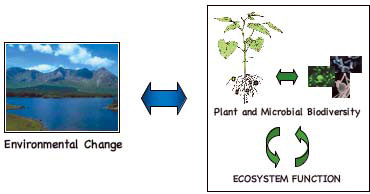| 2005 |

|
YEAR BOOK |
University College Cork
|
Microbial diversity and climate change
|
It is now almost universally accepted that we are in an era of climate change on a global scale. Some of the consequences of this are readily apparent: melting of polar ice-sheets, for example, and even in Ireland, the trend towards milder winters is clear. It is not known, however, what the long-term consequences for Ireland will be � with dire predictions including halting of the gulf stream, harsh winters more consistent with our latitude, and widespread coastal flooding and erosion associated with higher sea levels. The main cause of this climate change is higher temperatures throughout the world, a phenomenon known as global warming. Global warming is caused by excessive production of carbon-containing gases such as carbon dioxide (CO 2 ) and methane (CH 4 ) and nitrogen-containing gases such as nitrous oxide (N 2 O). Collectively, these are termed "greenhouse gases" and there is a major international drive to control production levels.

One of the key research themes in the BIOMERIT Research Centre and the Microbiology Department at University College Cork is exploring how plants influence microbial diversity and activity ( see figure above ) and how this, in turn, may be influenced by climate change. This work, which is funded from national and European Union grants, uses a modern approach known as 'systems microbiology' that integrates biological and computational approaches to explore the links between plant and microbial diversity and function, ecosystems, and environmental/ climatic change. One of our research aims is to understand this dynamic in order to better predict and, where possible, manage the effects of environmental change on vulnerable ecosystems and thus facilitate informed decision-making on environmental issues.
Contact: Prof. Fergal O'Gara, Director, BIOMERIT Research Centre,
Professor of Microbiology, Microbiology Department,
National University of Ireland, Cork (UCC);
E-mail: [email protected]